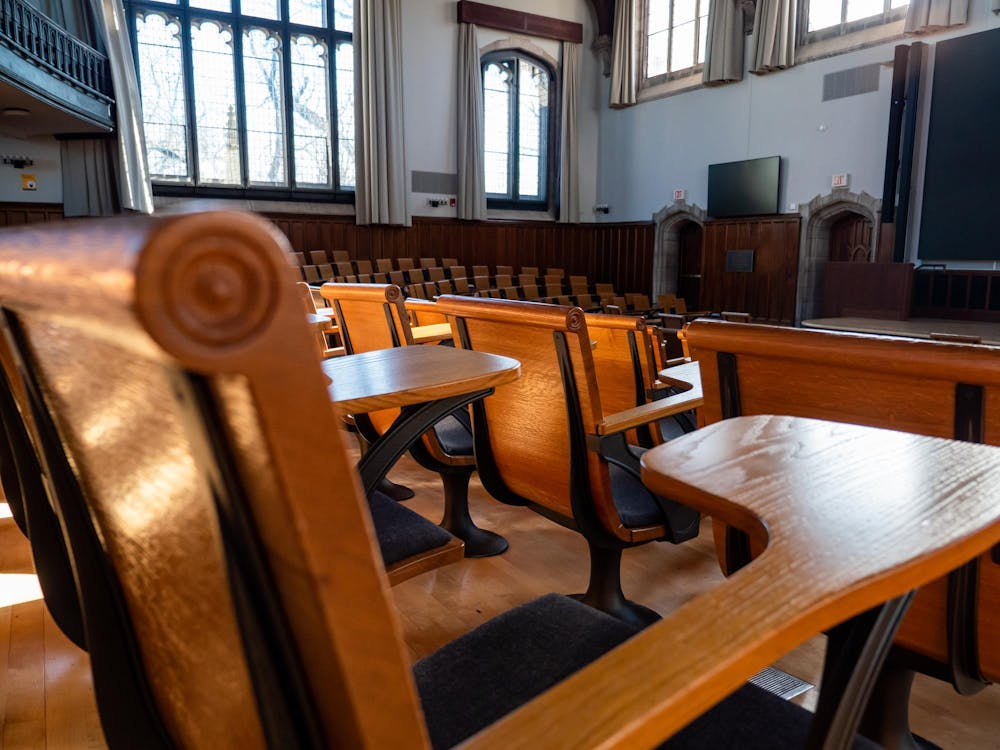Bicker is imperfect, and the Board commends attempts to reform the process. But the effects of multi-club Bicker are unclear. Questions remain as to whether it encourages affiliation “pipelines,” as bickerees have less one-on-one time with members, exacerbates feelings of rejection among bickerees who are rejected from not one but two clubs simultaneously and negatively affects sign-in clubs. These considerations bring to light a related and pressing issue: Data on eating club admissions is shockingly incomplete.
Before the University, Interclub Council and the clubs themselves continue to reform or assess their admissions policies, they should be working to gather more complete data. Transparency is also crucial to this endeavor because only with transparency will potential bickerees be able to make informed decisions; the Board urges clubs that have historically been secretive about membership figures to be more forthcoming and to cooperate in attempts to gather additional information. Such data might include information about the racial and geographic composition of the club as well as additional information on the particular affiliations of club members.
Previous COMBO surveys have shown significant racial disparities in club membership and even in admissions rates, which is problematic given our belief in the benefits of diversity and the wrongness of discrimination. But this data is incomplete, disregarding the effects of group membership (Greek organizations, teams, residential colleges, a cappella groups, etc). It also often fails to control for confounders such as geography or income. Furthermore, there is little data on what students do after Bicker; do those who don’t sign in join a co-op? Re-bicker the same club? Or attempt to join a different bicker club afterwards?
Access to this kind of information would be beneficial to all parties in the Bicker process. It would help the school, ICC and clubs improve while providing bickerees with the information they need to make informed decisions. The Board also urges the ICC to solicit more feedback from bickerees after the process. Well-intentioned reforms, like the “positive-news only” system in which unsuccessful applicants are informed of the outcome of Bicker via a welcome email from their second choice sign-in clubs, garner mixed reviews and the school community should make a concerted effort to understand which policies truly work.
The University has no place dictating the specific membership of any given club, but because the eating clubs and Bicker are an influential part of Princeton’s social fabric, they should be subjected to constant scrutiny. Although that scrutiny should not result in the University deciding the membership of clubs, it might lead to efforts that encourage a broader swath of the University to consider joining a particular club or to additional initiatives that mitigate the pain of being “hosed.” Conversely, the clubs have a responsibility to make the Bicker and sign-in process as painless and transparent as possible. Sensible reform will be impossible, though, without the commitment of all parties to gathering, analyzing and publicizing relevant information.
Dissent:
The majority assumes that Bicker is an accepted part of Princeton social life that merely needs to be made more efficient. Since its beginning, Bicker has been recognized by some to be both hurtful and unnecessary. In 1953, the Undergraduate Interclub Committee explained that Bicker was a process of “natural selection” and that acceptance into Princeton should never imply a guarantee of entry into a selective club. Such exclusionary social policies no longer have a place at the core of one of the nation’s great universities. Social exclusion undermines the principles underlying the diversity of our campus. As the majority suggests, the accumulation of further data documenting social, racial and economic stratification is important. But the purpose of this exercise should not be to improve the efficiency of Bicker, but to encourage more open discussion of the damage it causes and the alternatives that enlightened leadership can provide us.







